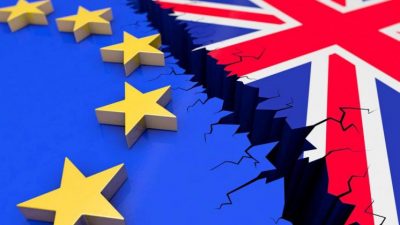At What Point Do We Admit Brexit Was About Tax Evasion?

This article was originally published in 2017.
Back in 2015, Britain rejected plans announced by Brussels to combat ‘industrial-scale tax avoidance by the world’s biggest multinationals’.
Britain had built a corporate tax haven for multinationals that included slashing corporation tax from 28 per cent to 20 per cent — new favourable tax regimes for multinationals with offshore financing subsidiaries, and tax breaks for patent-owning companies.
As a result, Britain saw a number of large corporations like Aon, Fiat Industrial, and Starbucks’ European operations set up headquarters in the UK with a small number of staff in order to take advantage of these tax laws …
*
The common tax regulations would have clamped down on offshoring and removed many of these elements of Britain’s competitive tax advantages over other EU member states. Then European Commissioner for Tax, Pierre Moscovici, stated that:
‘The current rules for corporate taxation no longer fit the modern context, as corporate tax planning has become more sophisticated and competitive forces between member states have increased, the tools for ensuring fair tax competition within the EU have reached their limits’.
Earlier in 2015, Conservative, UKIP and DUP MEPs also voted against EU plans to crack down on corporate tax dodging, by making companies report where they make their profits and pay taxes. The plan included a requirement for all member states to agree on a common EU position for the definition of tax havens and for coordinated penalties to be imposed upon countries or territories across the world that are uncooperative in tackling tax evasion.
Then just two weeks ago, the EU revealed that they were set to launch an investigation into a British Government scheme that could help multinational firms pay less tax. The EU believes that the special exemptions for multinationals in Britain do not comply with EU competition rules as they allow them to pay less tax than their domestic-only competitors. So with the release of the Paradise Papers last week, it is useful to examine the relationship that Britain has with tax avoiders and evaders and the UK’s stance on the EU clamp-down on tax dodging tactics.
The crux of the investigation centres around the UK’s ‘controlled foreign company’ (CFC) rules that George Osborne implemented in 2013. It allows a multinational company that resides in the UK to reduce its tax bill by moving some taxable income to an offshore subsidiary (or CFC).
The Conservatives, UKIP, and DUP frequently voted against tax evasion regulation in the European Parliament. The Conservative government pushed back against the EU crackdown on tax evasion by large corporations, and now the EU is investigating Britain’s controlled foreign companies rules that are thought to benefit large multinationals who can push their tax burdens offshore.
CFC reforms are set to become EU law, with all member states required to have anti-CFC tax evasion measures on their books from January 2019. Hard-line Brexiteers and UKIPers are desperate to get out of the EU by 2019, including those who have stood adamantly in opposition to the crackdown on tax evasion.
So I ask, at what point do we admit that tax evasion regulation was a driving force behind Brexit?
*
Note to readers: please click the share buttons above or below. Forward this article to your email lists. Crosspost on your blog site, internet forums. etc.
Featured image: Flag of the Cayman Islands – adopted on 14th May 1958, although the current flag dates from 1999. The territory is a major world offshore financial center and tax haven (Source: Shout Out UK)

